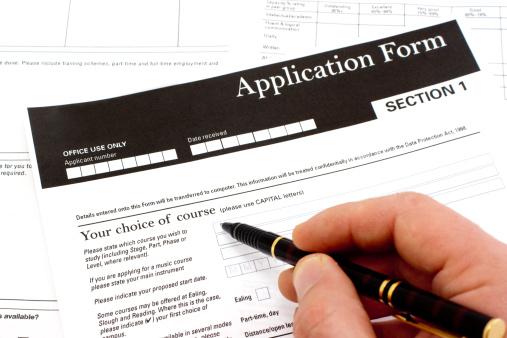Are you an undergraduate student thinking about going to graduate school? Not only is graduate school a great way to expand your knowledge in your field of interest, but it will also open the door to more job opportunities that require a master’s degree.
Once you’ve made a decision to take your education to the next level, it is important to prepare and apply to programs as soon as possible — it’s never too early to start! Besides giving you more time to fine-tune your application, starting early can increase your chances of admission to your chosen school.
1. Chart your course. Don’t make a decision on graduate school until you have chosen a field of study and completed several upper division courses. Do some research on careers in your field and find out which ones require an advanced degree, then use this information to map out a plan for graduate school. Decide on the degree you want to earn, the schools you would like to attend and your eventual career goals.
2. Take a practice GRE. Instead of waiting until your senior year to take the GRE or other required admission tests, complete a practice exam during your sophomore or junior year. Free preparation materials and practice tests are available on the Educational Testing Service website. By taking the test early, you’ll find out whether your scores are good enough for admission to your target schools. You will also have more time for test prep if you fall short in one or more assessment areas.
3.  Gather application requirements.The summer before your senior year is the time to decide on potential graduate programs and become familiar with each program’s application requirements and fellowship opportunities. You will find that most programs have overlapping requirements, such as letters of recommendation, GRE scores and a personal statement. You can save time by completing overlapping requirements in parallel. Use a checklist or spreadsheet to help track completed requirements for each program.
Gather application requirements.The summer before your senior year is the time to decide on potential graduate programs and become familiar with each program’s application requirements and fellowship opportunities. You will find that most programs have overlapping requirements, such as letters of recommendation, GRE scores and a personal statement. You can save time by completing overlapping requirements in parallel. Use a checklist or spreadsheet to help track completed requirements for each program.
4. Ask for faculty recommendations. Most graduate programs require three letters of recommendation. Try to get recommendations from faculty members can speak positively about your undergraduate work. Don’t wait until the last minute to ask for graduate school recommendations since some faculty members have a lot of requests. Also, don’t be shy about checking back to make sure your recommendation letters are sent out since some busy professors may forget to write letters after they make a commitment to do so.
5. Tell them who you are. Your personal statement provides you with the opportunity to describe your academic achievements and qualifications as well as the goals you would achieve in graduate school. Begin working on your statement and your curriculum vitae (CV) early in your senior year to make sure they represent your best work. Both documents should be thoughtful, clear and concise. If you are unsure about your writing skills, ask a colleague or friend to proofread what you have written.
Expect to submit all of your applications between October and January of your senior year. Make sure you arrange to have all your transcripts sent in advance of the application deadline. Once your applications are complete and have been submitted with all supporting paperwork, it’s time to take a breath, relax and wait to hear where you’ve been accepted.
If you have focused on your undergraduate studies and successfully completed each step of the application process, the odds are good that your hard work will be rewarded with a letter of acceptance to your graduate school of choice!
 Erika Phyall is the Community Relations Manager for the University of Southern California Rossier School of Education’s online master’s programs. USC Rossier provides current and aspiring teachers the opportunity to earn an online masters in teaching degree from a top-tier research university. Join the @USCTeacher community on Twitter.
Erika Phyall is the Community Relations Manager for the University of Southern California Rossier School of Education’s online master’s programs. USC Rossier provides current and aspiring teachers the opportunity to earn an online masters in teaching degree from a top-tier research university. Join the @USCTeacher community on Twitter.

